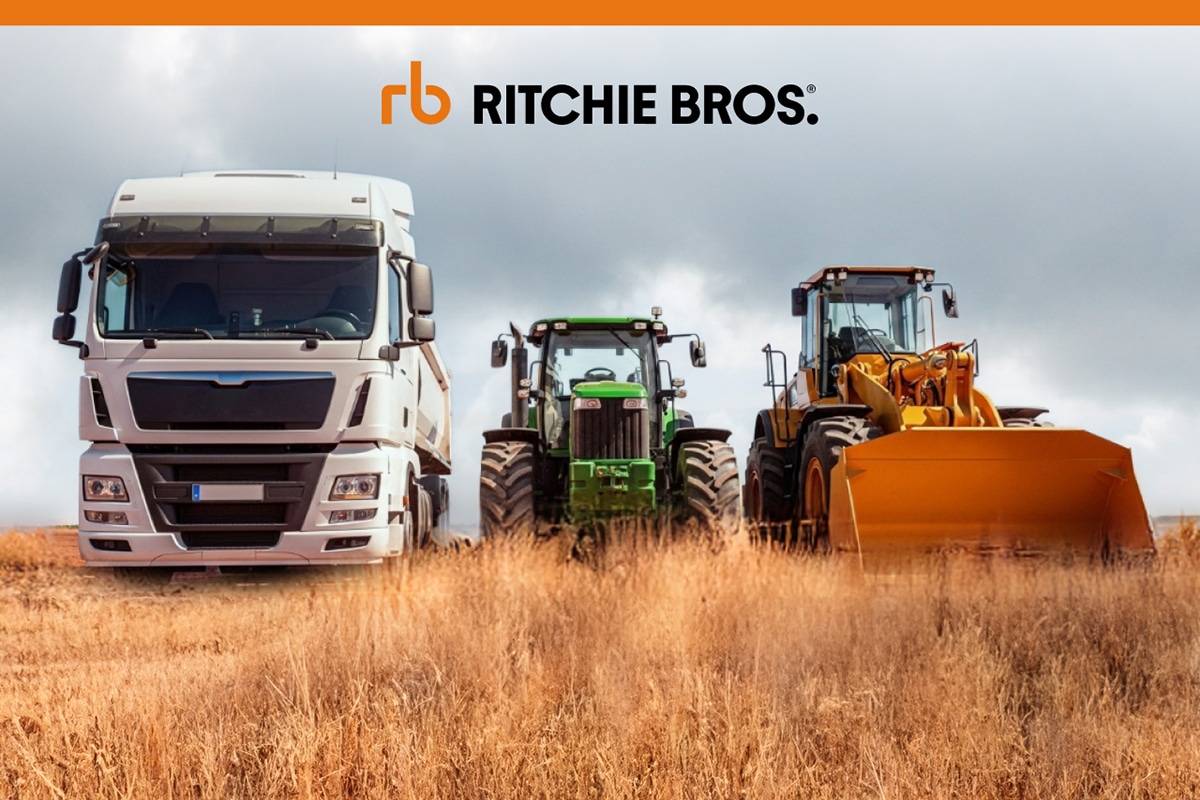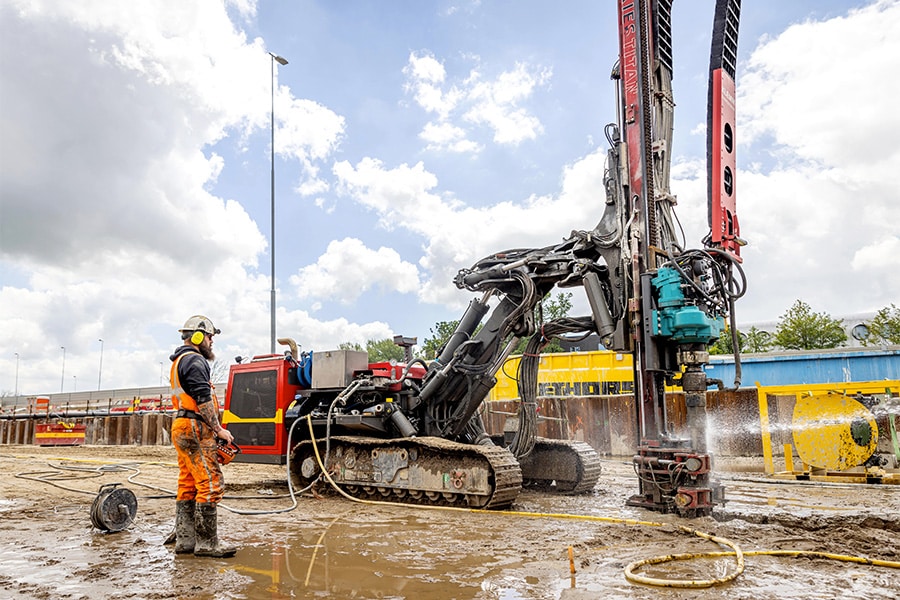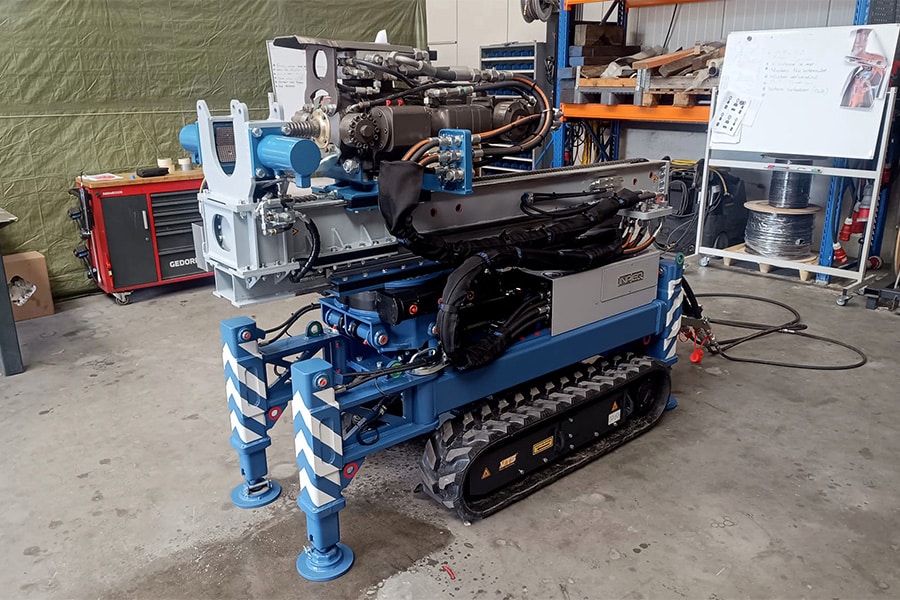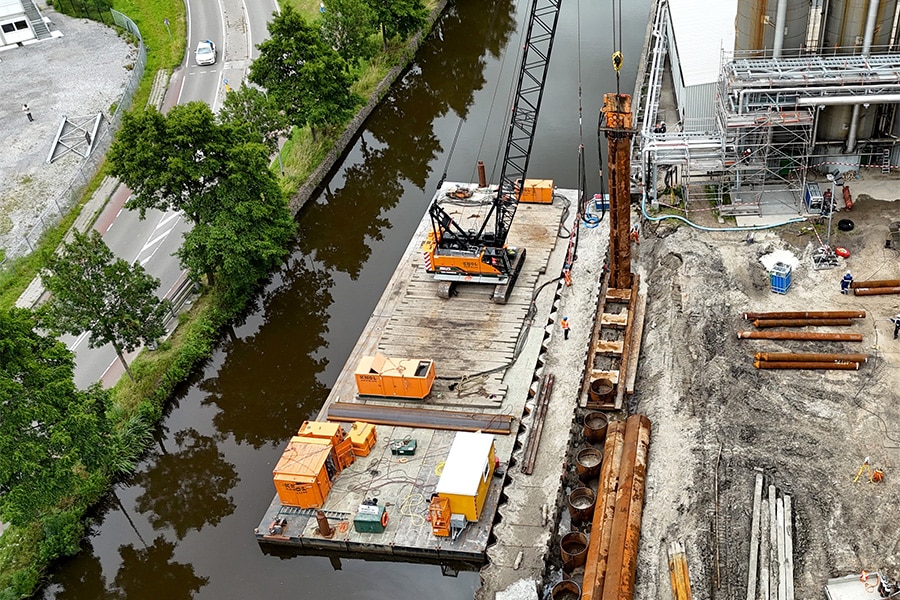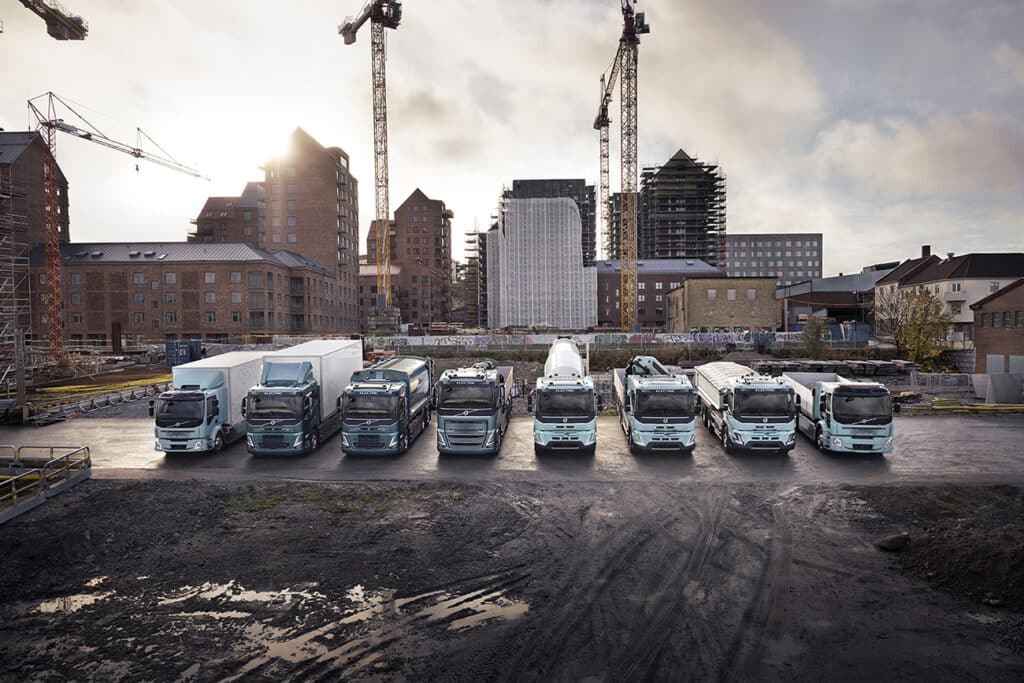
Emission-free requires quite a lot from company and employees
'If you want to be able to work tomorrow, you have to plug in today'
GKB Group from Barendrecht is investing heavily in an electric vehicle and equipment fleet. Because clients demand it and in order to guide the 77-year-old family business into the future in a sustainable way. The first electric Volvo is now driving satisfactorily. Although equipment manager Martijn Kraaijeveld still sees plenty of challenges.
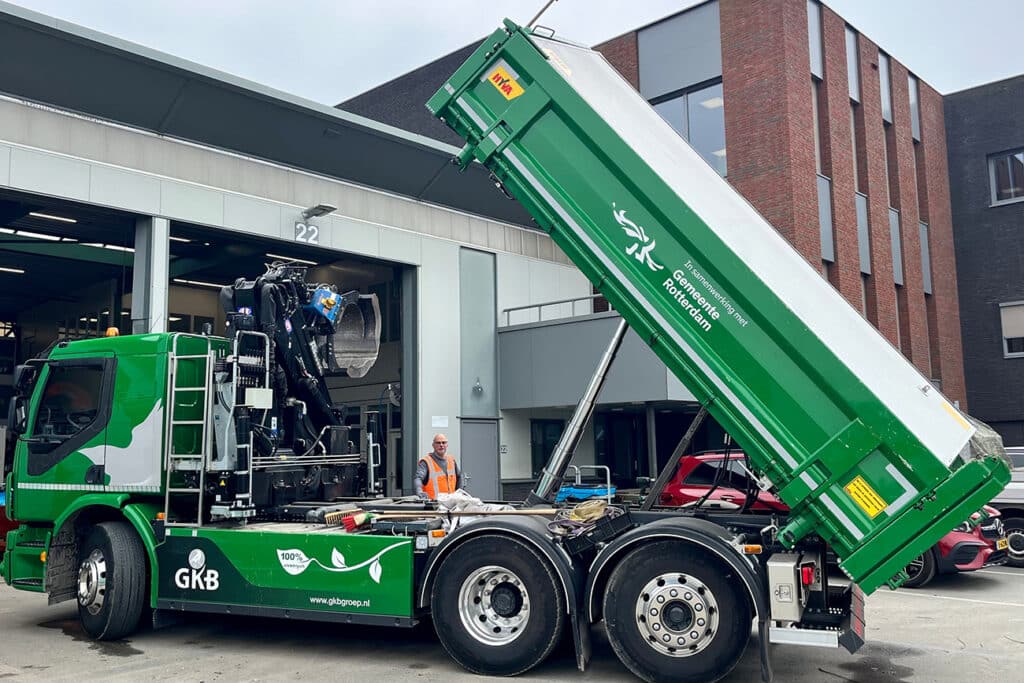
More than 75 years have passed since the family-owned GKB Group was founded. The self-proclaimed "furnishers of outdoor space" have organized themselves into six divisions, covering the complete spectrum from green space maintenance, dredging, shoring, tree care, civil works, playgrounds, green space maintenance, sports complexes to steelwork. GKB Realization designs the public space, GKB Machines designs and builds machines for processing and maintaining sports fields, GKB Vision does the design, engineering and drawing work for various projects, GKB Staalwerk makes steel objects for the public space, GKB Materieel is responsible for the company's extensive fleet of machines and vehicles, and Grondbank IJsselmonde supplies and processes the sand and soil used to realize numerous projects.
Sustainability is one of the pillars on which the company is built. "Otherwise we would never have been able to celebrate our 75th anniversary," states Martijn Kraaijeveld, equipment manager. "In our view, sustainability also means that you take good care of your personnel, that they will still be able to earn a living 50 years from now. It goes much further than just electrifying the fleet of vehicles or mowing in a different way. It is all-encompassing and requires looking far ahead."
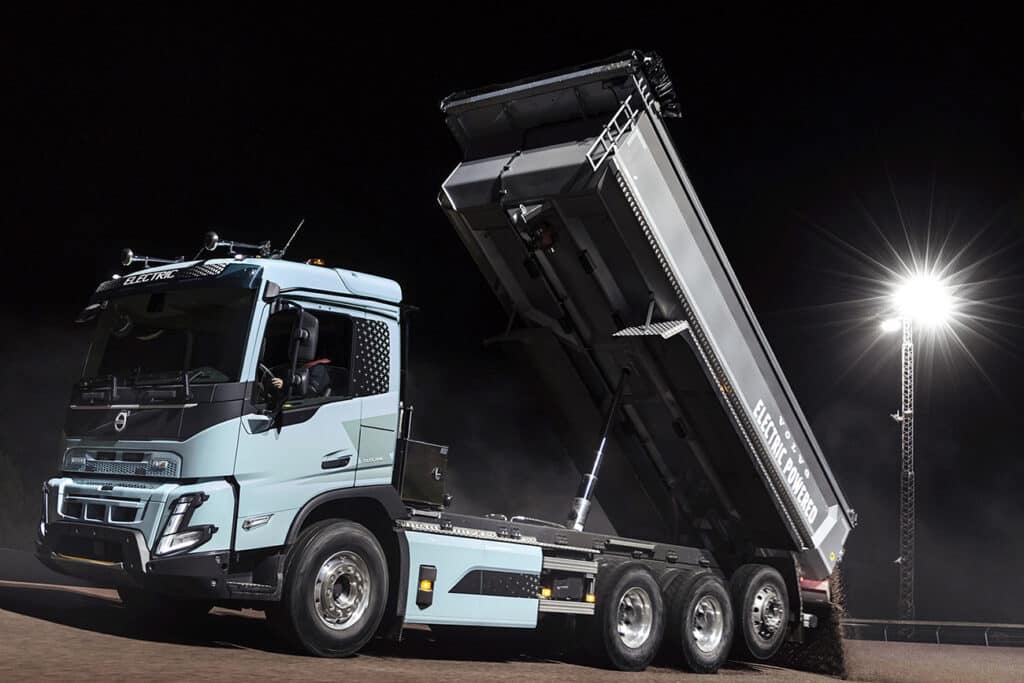
Plugging today
Nevertheless, in recent years the GKB Group has invested heavily in emission-free operations. This has resulted, among other things, in the purchase of two Volvo FH diesel trucks, four Volvo FMXs and a Volvo FE electric truck. "And another FMX Electric 4×2 is on order," Kraaijeveld adds. Despite those investments in clean equipment, Kraaijeveld regularly struggles with the challenges of working emission-free. "Because clean air for the children in Rotterdam and its surroundings is of course nice, but what does that mean for children on the other side of the world who have to extract all those minerals for us? And how do you ensure that all those machines can be charged as cleanly and sustainably as possible? Although our roofs here are full of solar panels, that is not nearly enough to keep all those heavy machines working every day. I often scratch my head about that. What I've learned about zero emissions over the past few years is that if you want to be able to work tomorrow, you have to plug in today."
Couple of percent extra
GKB Group has now been driving an all-electric Volvo FE in Rotterdam and the surrounding area for more than a year. "In urban areas it gets through the day quite nicely," says Kraaijeveld. "Recently, we started driving it a bit more miles and the driver puts it on the quick charger here at the yard between lunchtimes to pump in a few extra percent."
This indeed requires a different way of driving, agrees the equipment manager. "Because electricity is not in a jerry can. A driver has to be aware of that. Not for nothing has the driver taken a course in economical driving with his own vehicle. In fact, his function changes from 'driver' to 'process operator.' But it also requires an appropriate vehicle. Not all jobs yet lend themselves to an electric truck."
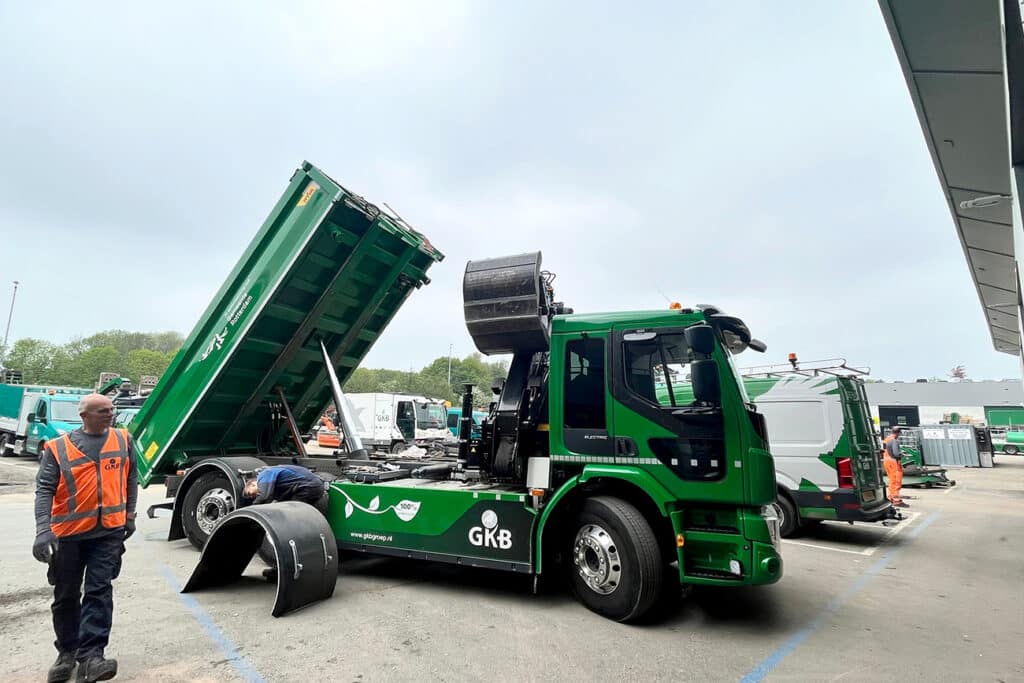
The electric Volvo FE is a tipper truck with a crane that is mainly used for transporting smaller loads of sand and tiles for neighborhood maintenance. Indeed, a client such as the municipality of Rotterdam increasingly demands emission-free equipment. Kraaijeveld involved the driver who drives the truck daily in the purchase. "It is important that you include your people in the story. That you explain to them why we want to use an electric truck for a particular job. After all, it is ultimately the driver who has to work with it all day. And he is very happy with it. Although he too has had to learn to drive in a different way."
Not always plannable
Another factor in choosing the type of truck is that GKB Group's work does not always allow itself to be planned very well. "We are not a transport company that always drives from A to B. Our work is by no means always repetitive or planable. For many reputable truck brands, it becomes difficult then."
Despite the challenges, Kraaijeveld also knows that continuing to invest in clean transportation is inevitable. "No one can escape it. And whether it will be electric or hydrogen? Who knows may say. But for our people, our children and our planet, we have no choice but to keep investing in this kind of technology."
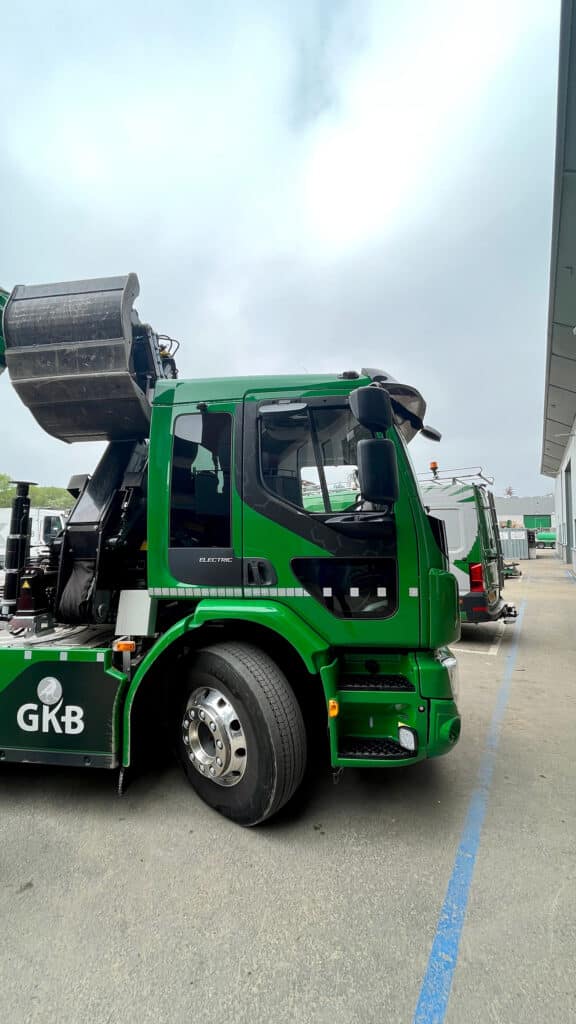
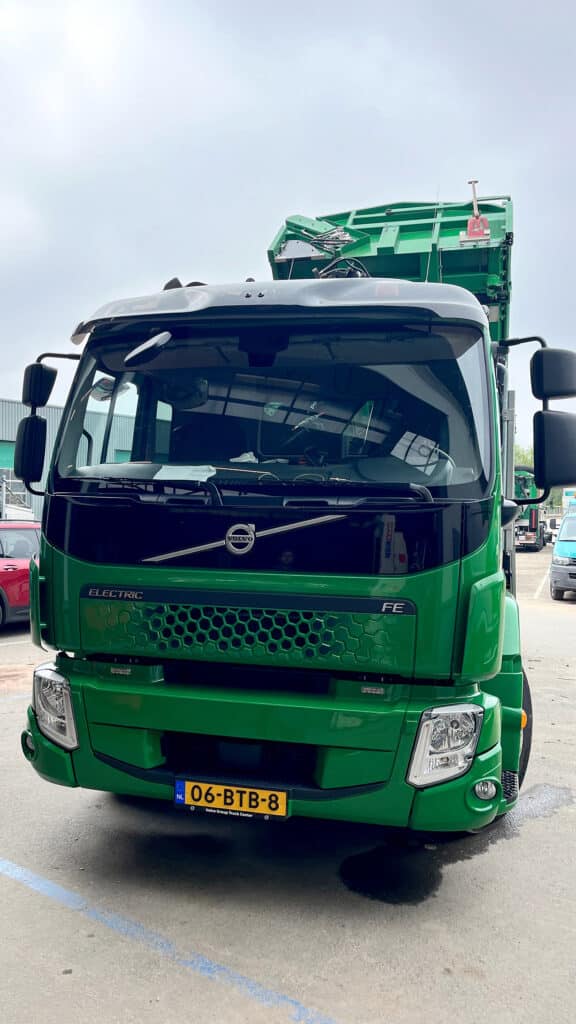
Family business
In 1946, Jan and Pieter-Arie Kraaijeveld laid the foundation for the GKB Group. Under the name Gebr. J. and P.A. Kraaijeveld, they cut reeds and rushes in the grienden and cut osier wood. The willow wood was used, among other things, in the Delta Works and dike reinforcement, for example to make the zinc pieces. Six of Pieter-Arie's children and three of Jan's children joined the business. Meanwhile, the second generation has left the business and it is in the hands of the third generation. The fourth generation is already ready to continue building the business. Thus, the Kraaijevelds earn their living together in harmony and a family atmosphere. More than twenty family members own the company and more than forty employees within the company listen to the name Kraaijeveld. The close family bond defines the culture, commitment and strong sense of responsibility of the entire team. "What is now at the top of the company used to stand together in the clay and jump over ditches," says
equipment manager Martijn Kraaijeveld.
Flexible platform
Volvo's electric trucks are based on a proven and flexible platform. In addition, the Volvo Gold Service Contract covers the complete truck and gives companies access to everything they need to minimize the risk of unplanned stops. Volvo also offers services to optimize range and digital tools for fleet management and driver support.
The robust Volvo FMX Electric can deliver and move heavy materials and machinery even in sensitive areas of the city, with the least amount of inconvenience. As a result, the trucks meet the demands of drivers and residents for cleaner and quieter transports. To simplify the transition to electric transportation, the truck is available with service and support packages for charging, route planning, range, battery monitoring and more.
Two or three electric motors combined with an I-Shift gearbox adapted for electromobility provide a smooth and powerful driving experience. The enormous power of up to 490 kW/666 hp is handled by a traction control system that is also suitable for slippery road surfaces. Various driving modes are available with desired levels of performance, comfort and energy consumption. The six battery packs deliver up to 540 kWh, providing sufficient range for construction jobs.
